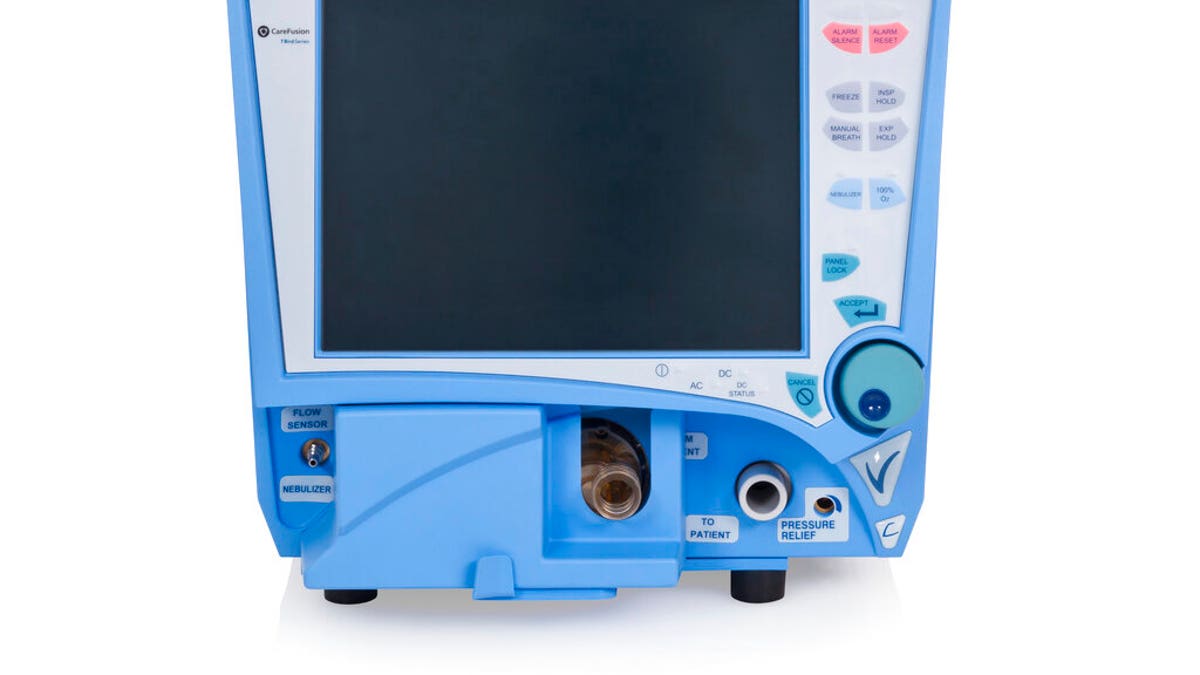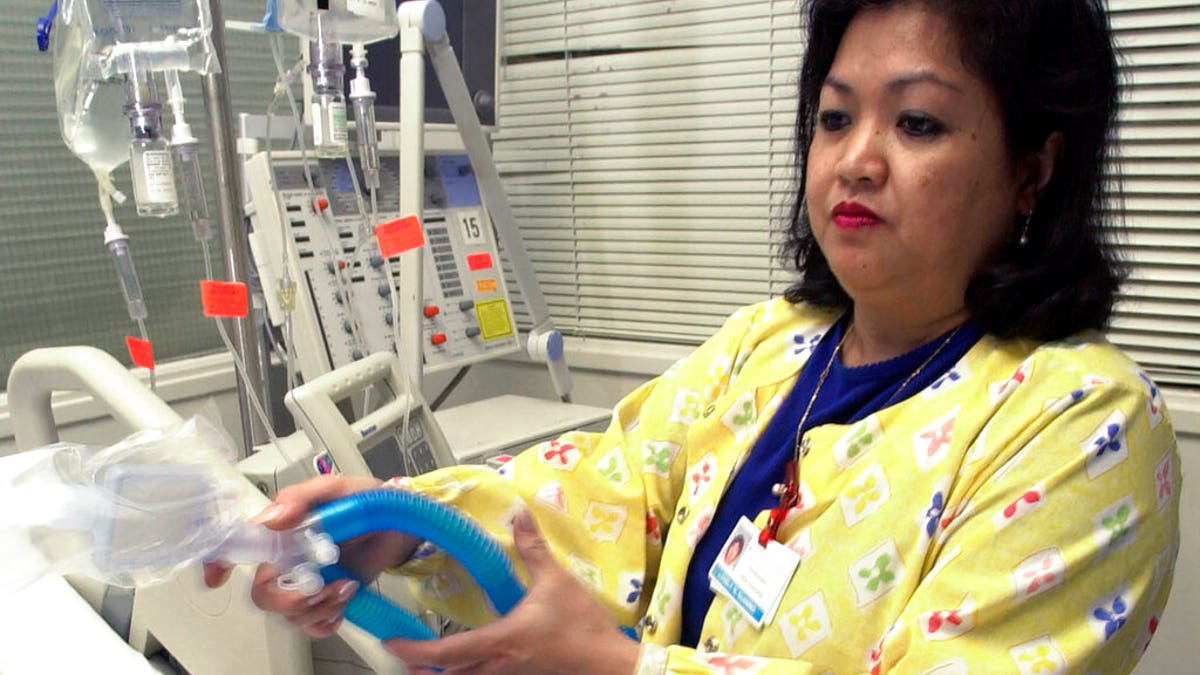President Trump seeks sizable stimulus payments to public as coronavirus crisis threatens American workers
Administration officials hope to convince congressional Republicans to pony up hundreds of billions of dollars to keep businesses and taxpayers afloat; chief White House correspondent John Roberts reports.
As the coronavirus continues to spread around the world, boosting the need for ventilators, companies are ramping up their efforts to keep up with demand.
From the Netherlands to Wisconsin, to Southern California, companies that manufacture the lifesaving machines all said they are stepping up production.

This undated photo provided by Vyaire Medical, Inc. shows a VELA ventilator. (Ken Hansen/Vyaire Medical, Inc. via AP)
A spokesman for Vyaire Medical Inc., which is based in Illinois, said the company is adding a second shift at its Palm Springs, Calif., factory and hiring more workers. As a global supplier, it has previously shipped ventilators to China and now is getting requests from Italy.
"We're prioritizing by where the hot spots are," he said.
Philips Healthcare of the Netherlands and GE, which manufactures ventilators in Wisconsin, have also begun implementing similar measures.
TEXAS DA CHARGES INDIVIDUAL WITH FALSELY CLAIMING POSITIVE COVID-19 TEST ON SOCIAL MEDIA
One major rental company, US Med-Equip, reported that U.S. hospitals have rented 60 percent more ventilators, monitors and other equipment over the past few weeks than at any time last year.
It said it has 6,500 ventilators on rent and expects 1,200 more to arrive within the next few weeks at its Houston headquarters.
"Our team is working around the clock to provide patient-ready equipment so medical staff can focus on their lifesaving work," CEO Gurmit Singh Bhatia said in a statement.
The Society of Critical Care Medicine has projected that 960,000 coronavirus patients in the U.S. may need to be put on ventilators at one point or another during the outbreak. The organization estimates the U.S. has only about 200,000 of the machines -- and half are older models that may not be ideal for the most critically ill patients.

FILE: Lovely R. Suanino, a respiratory therapist at Newark Beth Israel Medical Center in Newark, N.J., demonstrates setting up a ventilator in the intensive care unit of the hospital. (AP)
But whether medical equipment suppliers can turn out enough of the machines at a time when countries around the world are clamoring for them, too, is unclear.
In the most severe cases, the coronavirus damages healthy tissue in the lungs, making it hard for them to deliver oxygen to the blood. Pneumonia can develop, along with a more severe and potentially deadly condition called acute respiratory distress syndrome, which can damage other organs.
Ventilators feed oxygen into the lungs of patients with severe respiratory problems through a tube inserted down the throat. The machines are also used routinely to help other hospital patients breathe, namely those undergoing surgery while under general anesthesia.
HOW ARE HOSPITALS, US GOVERNMENT WORKING TO PROTECT AGAINST A POTENTIAL VENTILATOR SHORTAGE?
The other problem is that there are only enough respiratory therapists, specialist nurses and doctors with the ideal type of critical care training in the U.S. for about 135,000 patients to be put on ventilators at any one time, the critical care organization said.
Dr. Lewis Kaplan, president of the Society of Critical Care Medicine, said postponing non-emergency surgeries in the event of a big surge in coronavirus cases could help free up some ventilators, as well as anesthesiologists and nurse anesthetists, to deal with the crisis.
On Tuesday, U.S. Defense Secretary Mark Esper said the Pentagon will provide 2,000 specialized ventilators to federal health authorities to help handle the outbreak. He said the machines are designed for use by troops, and the military will need to train civilians on how to use them.
President Trump said Monday that the government is seeking to acquire more ventilators.
CLICK HERE TO GET THE FOX NEWS APP
Dr. Anthony Fauci, the Trump administration's infectious disease expert, told ABC on Monday that the federal government has an estimated 13,000 ventilators in a Strategic National Stockpile, which keeps medical supplies on hand for states to use in emergencies. But whether the number of ventilators nationwide is enough depends on how well the country can contain the virus, Fauci said.
The Associated Press contributed to this report.









































